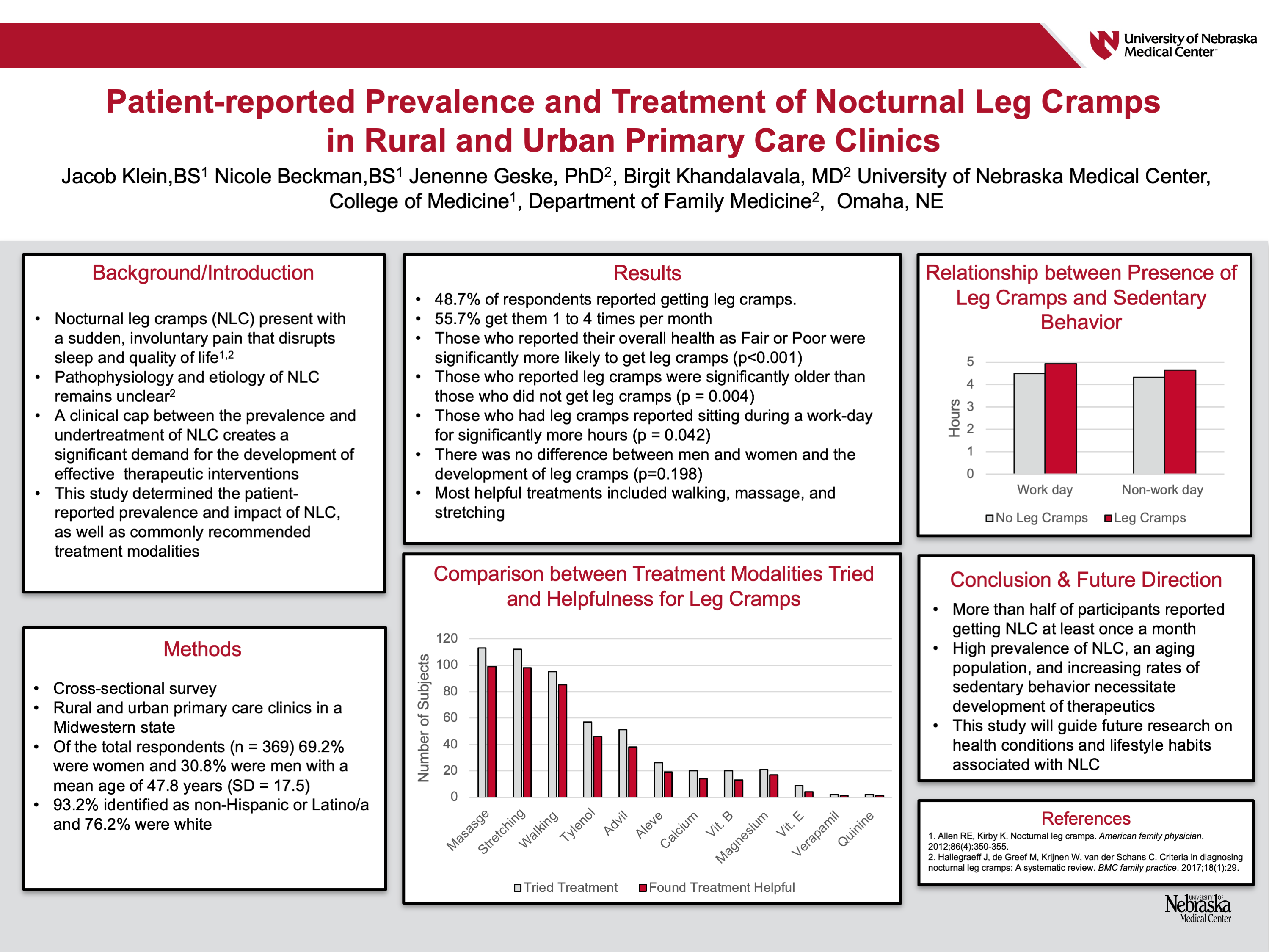SRFP077: Patient-Reported Prevalence and Treatment of Nocturnal Leg Cramps in Rural and Urban Primary Care Clinics (Pearls)
Jacob Klein, BS; Nicole Beckman; Jenenne Geske, PhD; Birgit Khandalavala, MBBS
Abstract
Objective: Determine the patient-reported prevalence and impact of NLC at primary care clinics. The collected data will explore the characteristics of patients who have NLC and examine commonly recommended treatment modalities.
Study Design: Cross-Sectional Survey
Setting: Rural and urban primary care clinics in a Midwestern state.
Population Studied: Subjects that were 19 years of age and older who were patients at one of several primary care clinics.
Main and Secondary Outcome Measures: The main outcome of this study measured the prevalence of NLC in rural and urban primary care settings in a Midwestern state. Secondary outcomes measured commonly recommended treatment modalities and their efficacy based on patient-reported surveys.
Results/Anticipated Results: Based on the 369 total respondents, 69.2% were women and 30.8% were men with a mean age of 47.8 years (SD=17.5). Of the patients surveyed, 48.7% of respondents reported getting NLC, with the majority of them experiencing them 1-4 times per month. Chi-square analysis revealed there was no difference between men and women in the likelihood of developing NLCs. Furthermore, those who reported their overall health as “Fair” or “Poor” were significantly more prone to NLC development than individuals who reported their overall health as “Excellent”, “Very Good”, or “Good.” Older and sedentary individuals were more prone to NLC. Finally, the most commonly used and effective patient-reported treatment modalities for NLC were stretching, massaging, and walking.
Conclusions: The data pertaining to the prevalence of NLC in adults is consistent with current literature. The high prevalence, in conjunction with an aging population and increasing rates of sedentary behavior, necessitates the development of effective therapeutics. This study will also be useful in guiding future research on health conditions and lifestyle habits associated with NLC.

Jack Westfall
jwestfall@aafp.org 11/21/2021Terrific project. Great poster and abstract. Thanks for sharing at NAPCRG